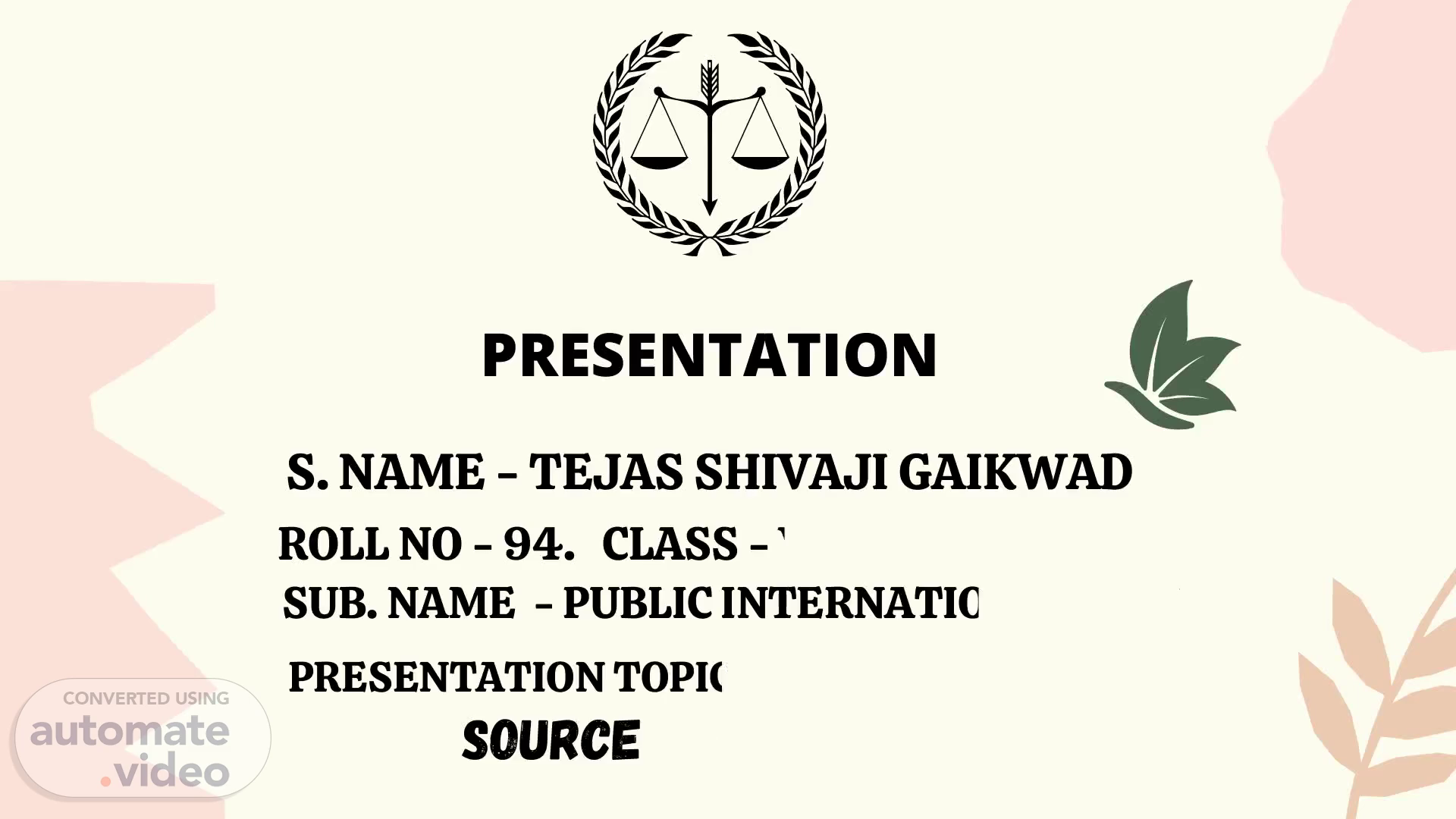
Peach and Green Organic Shapes Meditation Workshop Webinar Keynote Presentation
Scene 1 (0s)
. . PRESENTATION. S. NAME - TEJAS SHIVAJI GAIKWAD.
Scene 2 (12s)
. . International law also known as "law of nations" is the name of a body of rules which regulate the conduct of sovereign states in their relations with one another.[1] Sources of international law include treaties, international.
Scene 3 (38s)
. . Article 38(1) of the Statute of the International Court of Justice is generally recognized as a definitive statement of the sources of international law. It requires the Court to apply, among other things, (a) international conventions, whether general or particular, establishing rules.
Scene 4 (1m 6s)
. . During the 19th century, it was recognized by legal positivists that a sovereign could limit its authority to act by consenting to an agreement according to the principle pacta sunt servanda. This consensual view of international law was.
Scene 5 (1m 27s)
. . On the question of preference between sources of international law, rules established by.
Scene 6 (2m 2s)
. . Main article: Treaties. Treaties and conventions are the persuasive source of international law and.
Scene 7 (2m 36s)
. . Main article: Customary international law. Article 38(1)(b) of the ICJ Statute refers to "international custom" as a source of international law, specifically emphasizing the two requirements of state practice.
Scene 8 (2m 52s)
. . When examining state practice to determine relevant rules of international.
Scene 9 (3m 18s)
. . It may be argued that the practice of international organizations, most notably that of.
Scene 10 (3m 58s)
. . A wealth of state practice does not usually carry with it a.
Scene 11 (4m 19s)
. . A peremptory norm or jus cogens (Latin for "compelling law" or "strong law") is a principle of international law considered so.
Scene 12 (4m 38s)
. . The scope of general principles of law, to which Article 38(1) of the Statute of the ICJ.
Scene 13 (5m 27s)
. . According to Article 38(1)(d) of its Statute, the ICJ is also to apply "judicial decisions and the teachings of the most highly qualified.
Scene 14 (5m 50s)
. . The decisions of international and municipal courts and the.
Scene 15 (6m 8s)
. . Article 38(1)(d) of the International Court of Justice Statute states that.